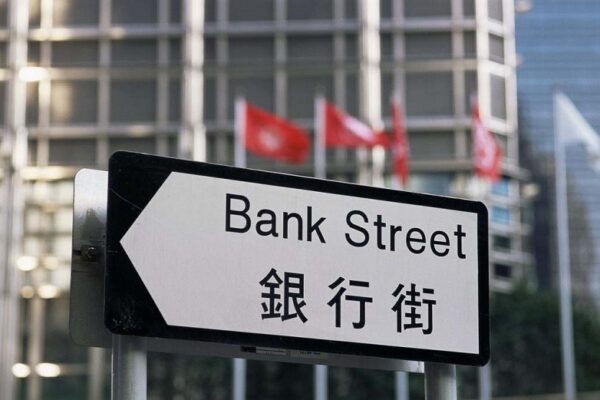
Over 72,000 new registrations in six months! Why entrepreneurs are choosing to register Hong Kong companies?
2023-09-13
Identity Planning | Hong Kong's "Talent Grabbing" has achieved remarkable results, with more than 75,000 applicants approved!
2023-09-20Hong Kong as an international financial center, its low tax rate and simple tax system for mainland investors is very attractive, many mainland or overseas investors are attracted to Hong Kong to register a company or to Hong Kong for development, today we understand the difference between mainland China and Hong Kong, China tax.

#01
Main taxes
fact
There are three main types of taxes levied in Hong Kong, namelyProfits tax, salaries tax and property tax.. Other taxes include stamp duty, customs duty, betting duty and hotel room rental tax.
factexempt from taxationSales tax / excise tax / VAT, capital gains tax, inheritance tax, dividend tax, etc.
mainland China (PRC excluding Hong Kong and Macau, but including islands such as Hainan)
The current taxes total18 speciesThey are: value-added tax, consumption tax, enterprise income tax, individual income tax, resource tax, urban maintenance and construction tax, property tax, stamp duty, urban land use tax, land value-added tax, vehicle and ship tax, ship tonnage tax, vehicle purchase tax, customs duty, cultivated land occupancy tax, deed tax, tobacco tax and environmental protection tax.

#02
taxation principle
Hong Kong: territorial source principle of taxation
Hong Kong adopts the territorial source principle of taxation, which, in simple terms, means thatOnly income earned within Hong Kong is subject to taxIn addition, income derived from sources outside Hong Kong is not taxable in Hong Kong.
Mainland: Principle of Resident Taxation for Tax Purposes
Mainland China adopts the principle of taxation based on residence. In other wordsThe tax is levied on the basis of the taxpayer's place of residence. In other words, if a person resides in Mainland China, he needs to pay tax according to Mainland China's tax policy on all income earned worldwide.
It is worth noting that the Individual Income Tax Law of Mainland China stipulates that if you are domiciled in Mainland China or in a tax yearStaying in Mainland China for 183 days or more, would then be considered a tax resident.
If a non-resident stays in China for less than 183 days during the tax year, usually only the income earned from Mainland China is subject to tax.

#03
tax threshold
fact
hasn'tProvides for a starting point for personal income tax, but instead provides for exemptions and exemptions from tax.
mainland China (PRC excluding Hong Kong and Macau, but including islands such as Hainan)
After October 1, 2018The tax threshold is $5,000.The new tax law stipulates that the comprehensive income of a resident individual shall be the taxable income after deducting the expenses of 60,000 yuan as well as special deductions, special additional deductions and other deductions determined in accordance with the law from the income of the resident individual in each taxable year.

#04
formula
The tax cycle in both Hong Kong and the Mainland is calculated on an annual basis. However, the year of assessment in Hong Kong is defined as the period from April 1 of each year to March 31 of the following year.
The formula for calculating salaries tax in Hong Kong:
Gross taxable income = Annual income - Deductions - Exemptions
Total tax payable = total taxable income × corresponding tax rate
The formula for calculating personal income tax in the Mainland:
Taxable income = amount of salary before tax - five insurance and one pension (personal contribution) - starting point (5000RMB)
Taxable amount = Taxable income × Tax rate - Quick deductions

#05
Personal Tax Deductions and Exemptions
Comparison with the MainlandSeven.For Hong Kong, the categories are even more comprehensive, with a total of13 itemsThe
In Hong Kong, whether you are getting married, having a child, supporting your parents, living with your parents, supporting a younger sibling, divorced single parent, injured or sick, buying a home, pursuing further studies, or doing charity worktax allowanceThe intensity is extremely high.
Taking the birth of a child as an example, the annual tax allowance for having a child in Hong Kong is HK$120,000, with an average monthly tax allowance of HK$10,000 (about RMB 9,000), while the Mainland only has a monthly tax allowance of RMB 1,000.
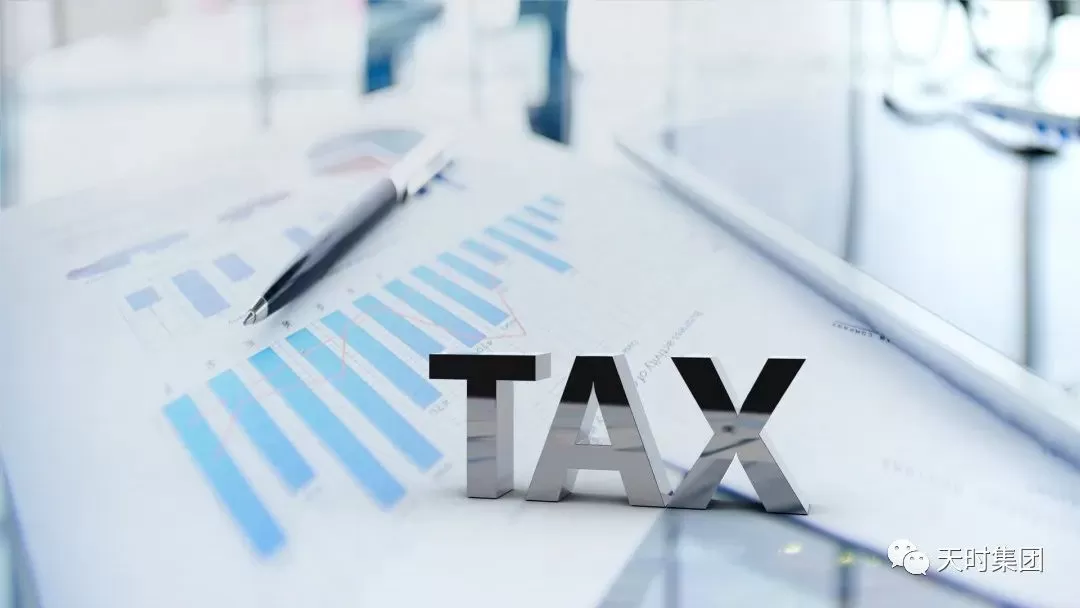
8 tax exemptions and 5 deductions in Hong Kong
🔺 Tax Free Program
- Basic tax allowance: 132,000
- Married person's allowance: 264,000
- Child allowance (1st-9th, per name): 120,000
- Dependent sibling allowance: 37,500
- Dependents aged 60 and over (per name): 50,000; Dependents aged 55 and over (per name): 25,000
- Single parent allowance: 132000
- Disabled Person's Allowance: 75,000
- Disabled Dependant's Allowance (per name): 75,000
🔺 Deductions
- Expenditure on personal further education: 100,000 (ceiling)
- Expenditure on residential care for the elderly: 100,000 (ceiling)
- Home loan interest: 100,000 (maximum)
- MPF contribution: 18,000 (maximum)
- Charitable donations: 35%
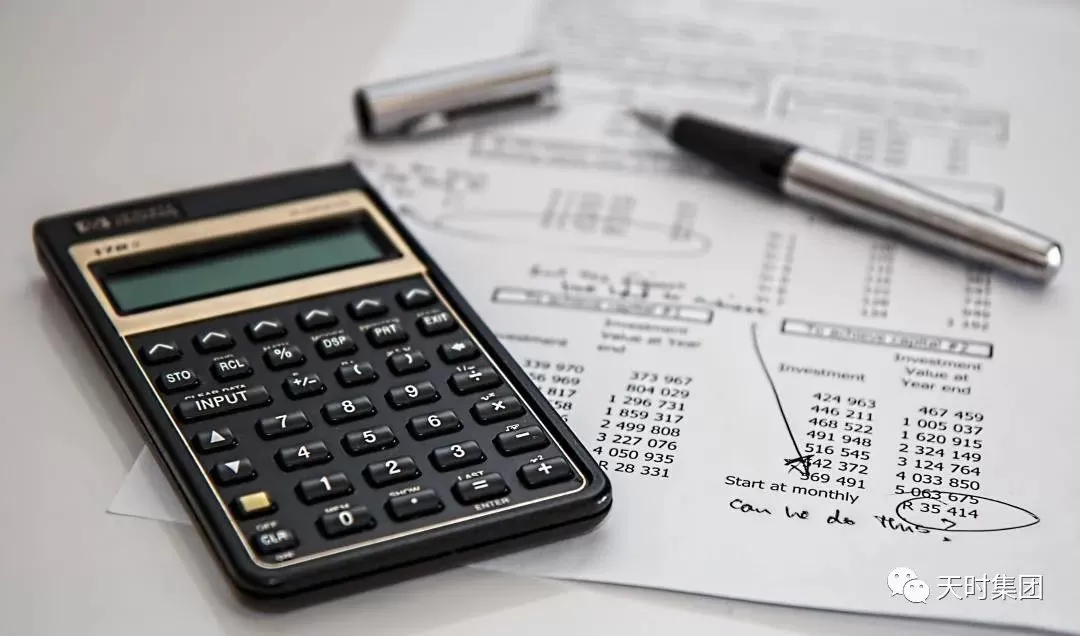
One tax exemption and six deductions in the Mainland
🔺 Tax Free Program
- Individual income tax threshold (i.e., exemption): 5,000 yuan
🔺 Deductions
- Children's education: $1,000/each
- Continuing education: 400 yuan/month, 3600 yuan/year
- Interest on housing loans: 1000, up to 240 months
- Housing rent: $1500, $1100, $800 (three levels)
- Elderly support: 2,000, 1,000 (two levels)
- Major medical treatment: the portion that exceeds $15,000 in aggregate and does not exceed $80,000 (this is calculated on an annual basis).

#06
Tax Rate Comparison
In terms of tax rate design, Hong Kong, like the Mainland, usesprogressive tax rateof the system.
fact
However, unlike the Mainland, salaries tax in Hong Kong is levied on a territorial source basis. Any income arising in or derived from Hong Kong is subject to salaries tax. The year of assessment runs from April 1 to March 31 of the following year, and there are two options, both of which are levied on the lower amount of tax.
🔺 Standard tax rate method
Gross proceeds, net of expenses, atStandard rate levy for 15%This approach is generally used by high income earners.
🔺 Excessively progressive tax rate method
Use gross income after expenses at the rate of2%-17% Five-tier super progressive tax ratelevy, and low-income earners pay less tax using this approach.
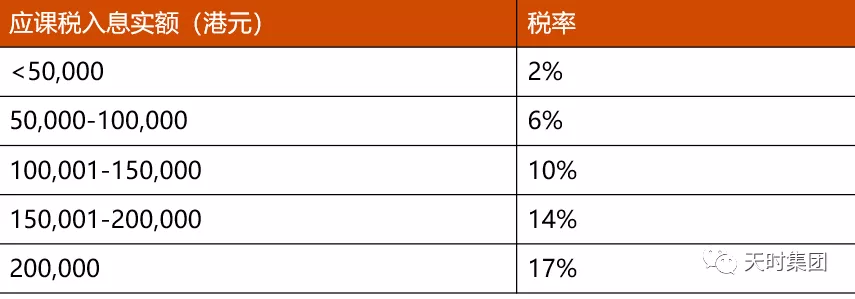
mainland China (PRC excluding Hong Kong and Macau, but including islands such as Hainan)
There is only one progressive tax rate system in the Mainland, and the richer the person is, the more tax he has to pay.Subject to a maximum tax of 45%, nearly half of its revenue.
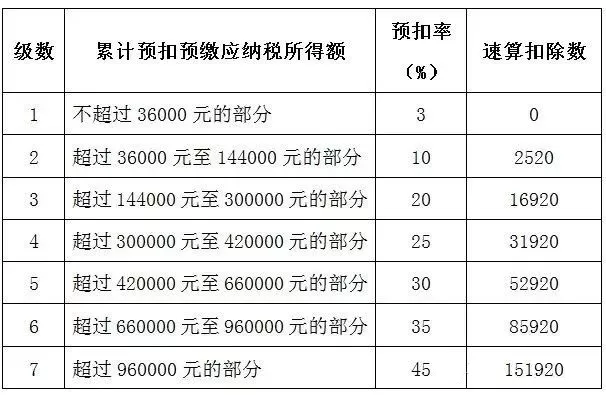
Through the above comparison, from the taxation point of view, Hong Kong's taxation practisesRegional taxation.Fairness, low tax rates and humanization of the tax system. In addition toTax incentivesAlsoNo exchange controls(math.) genusFreedom of access to fundsThis will make it easier and more advantageous to do business in Hong Kong.
